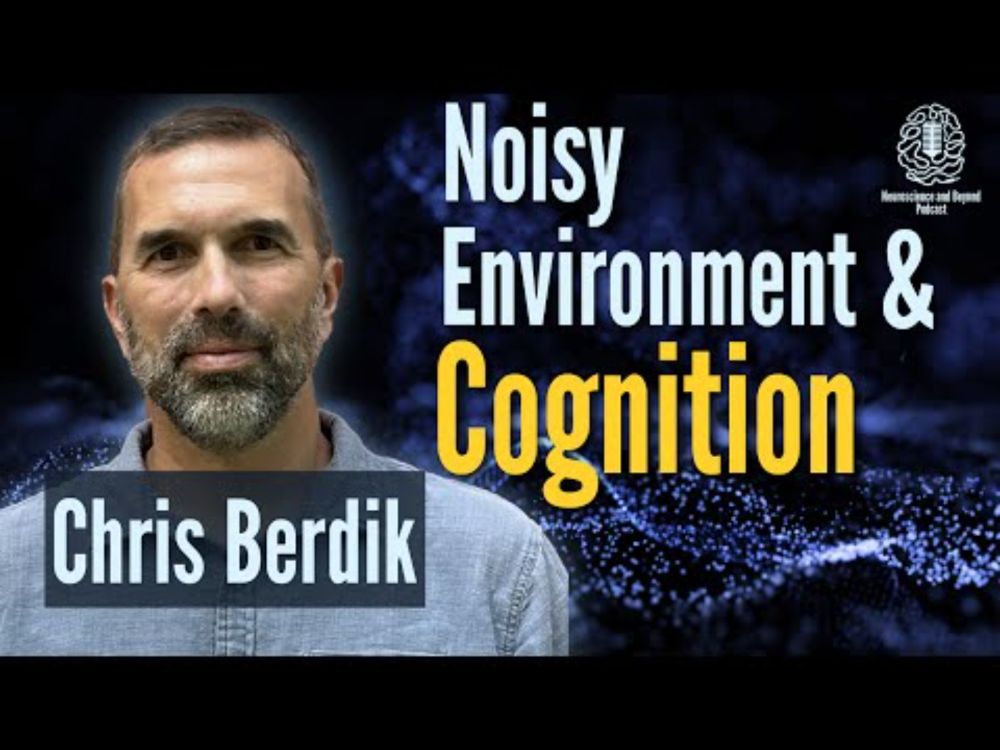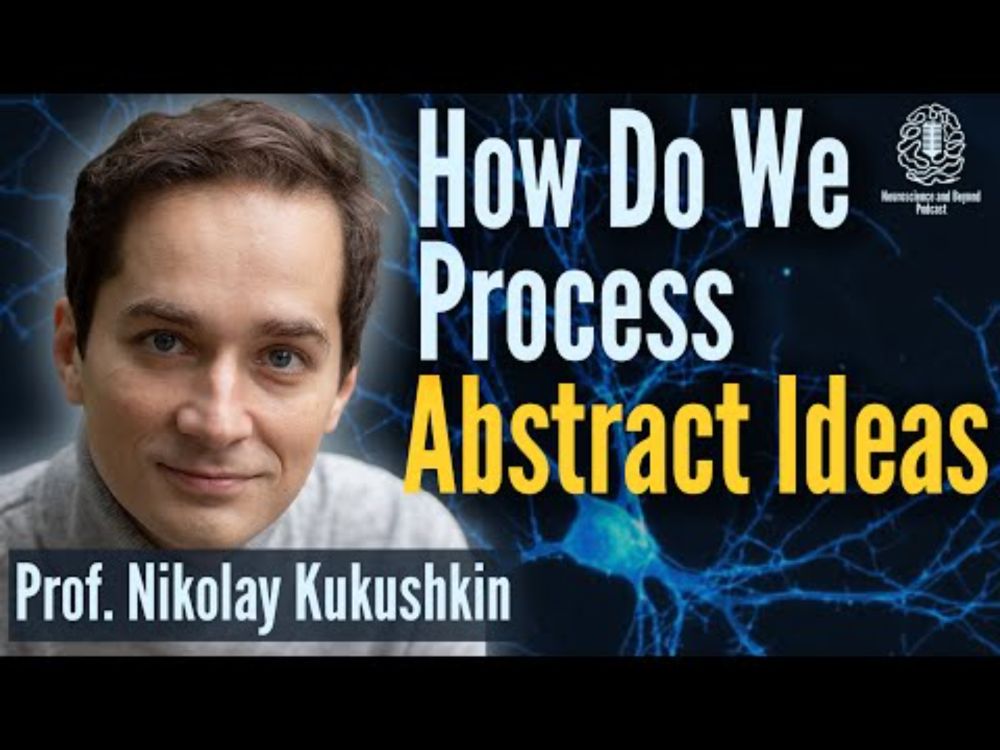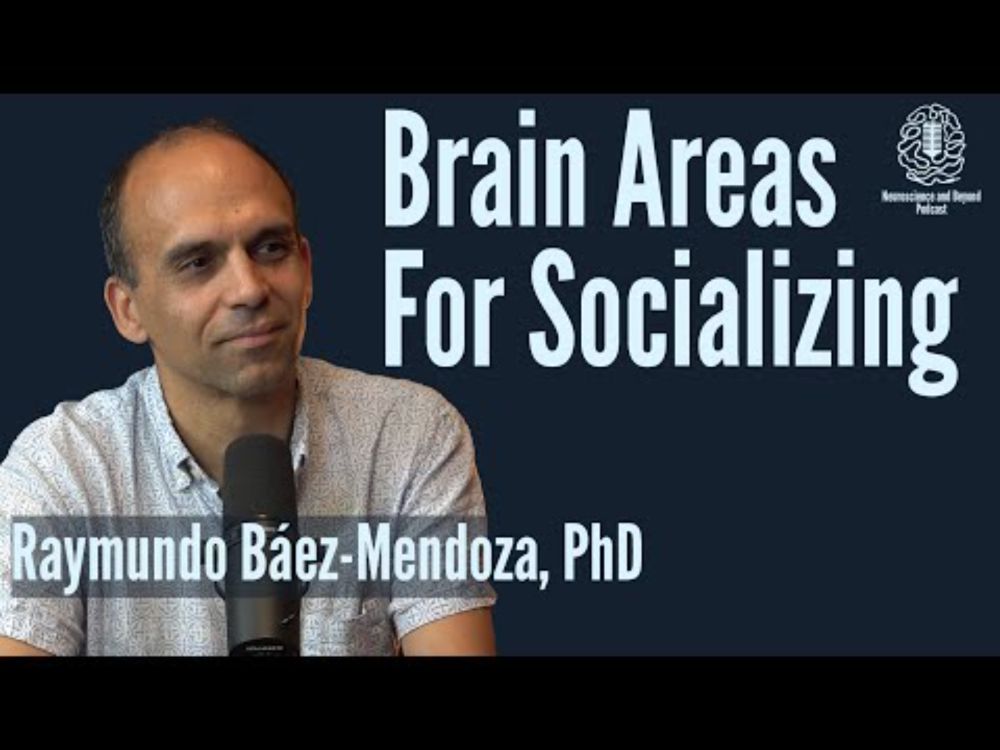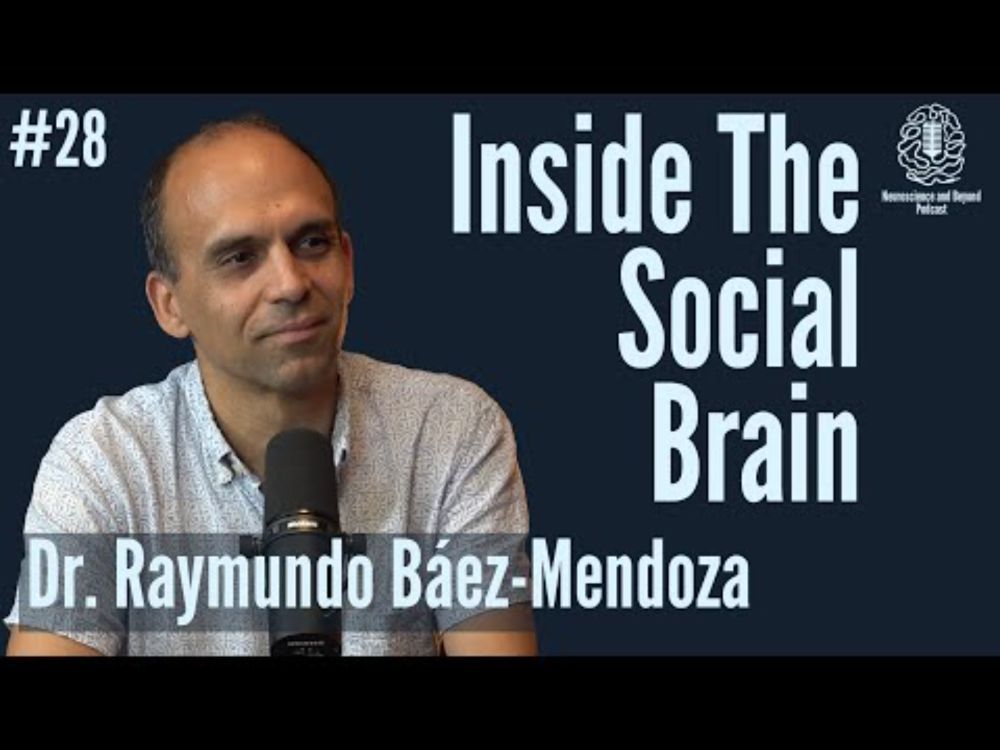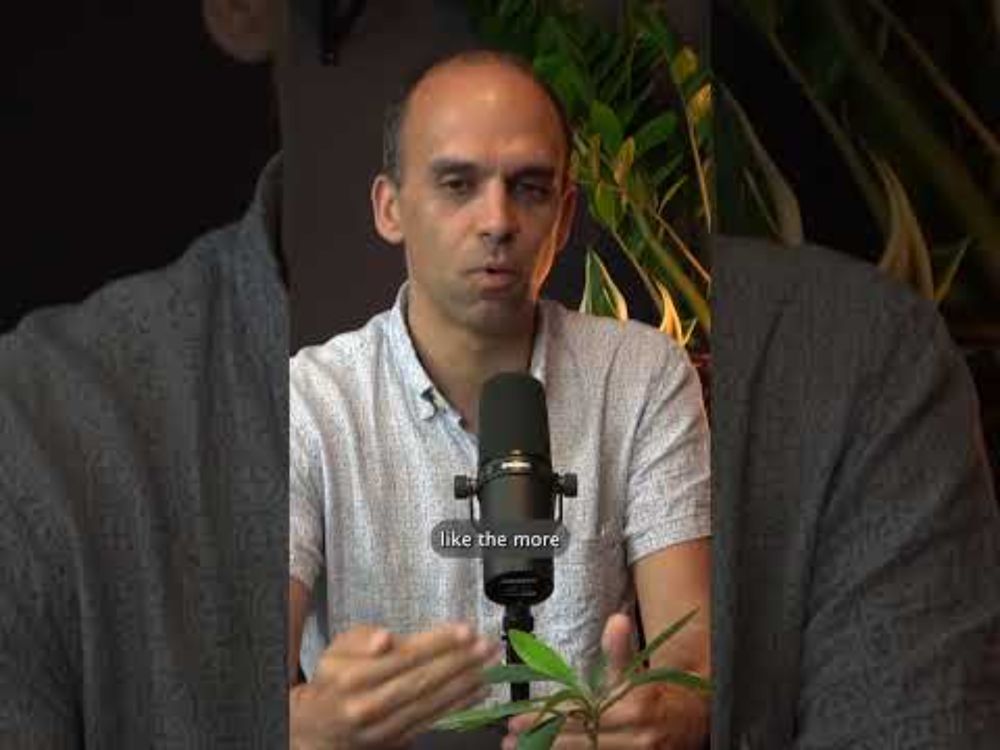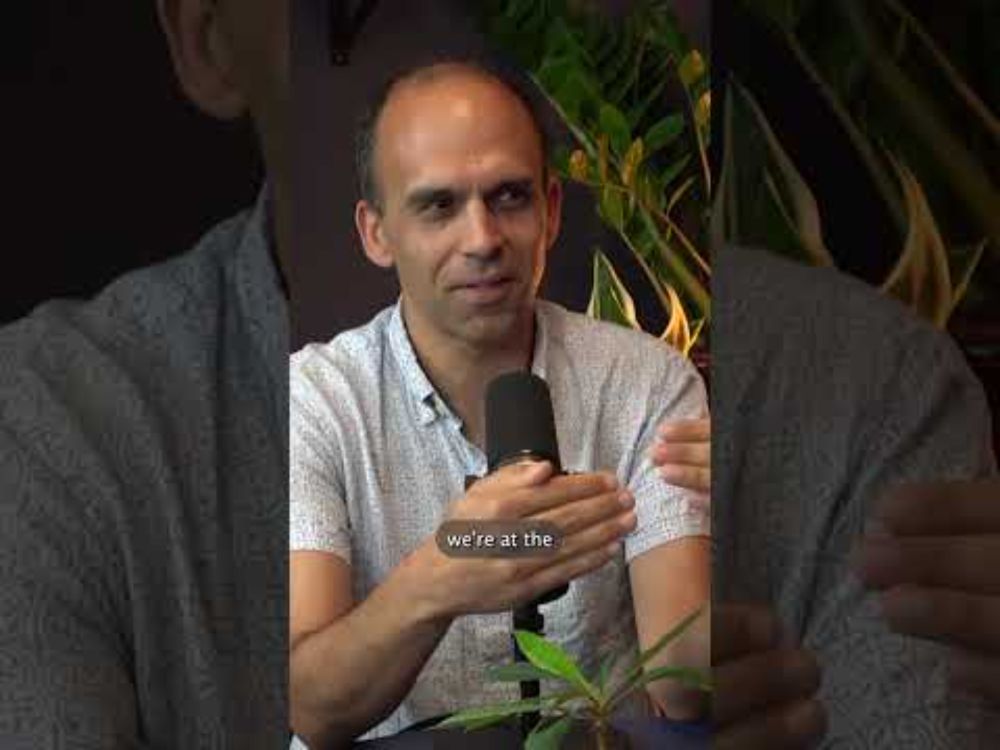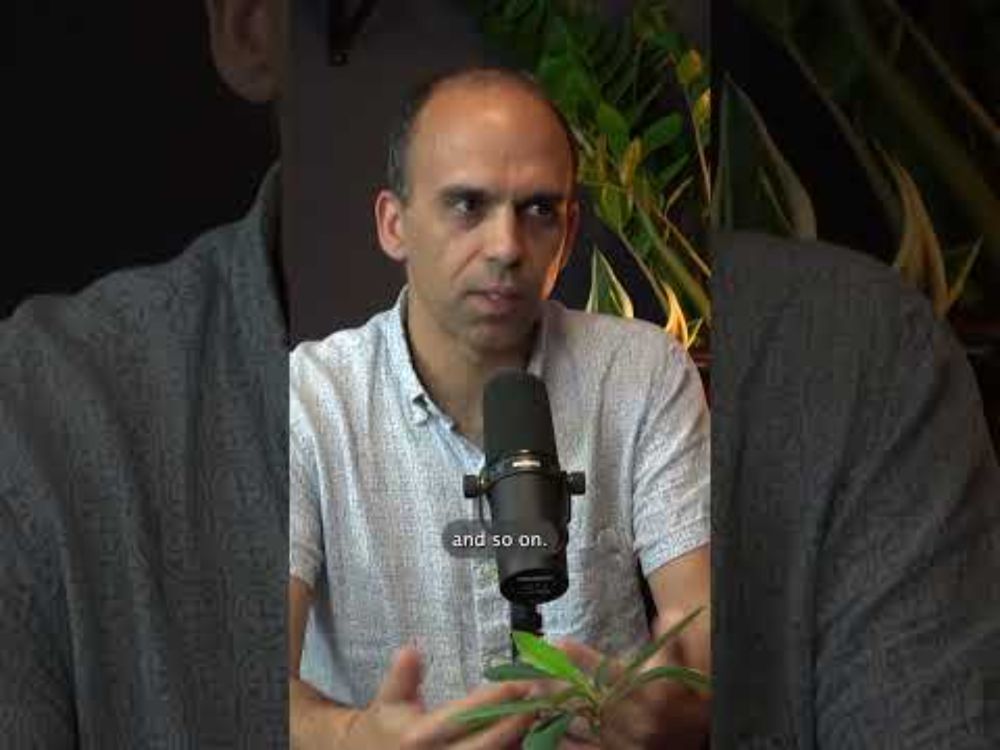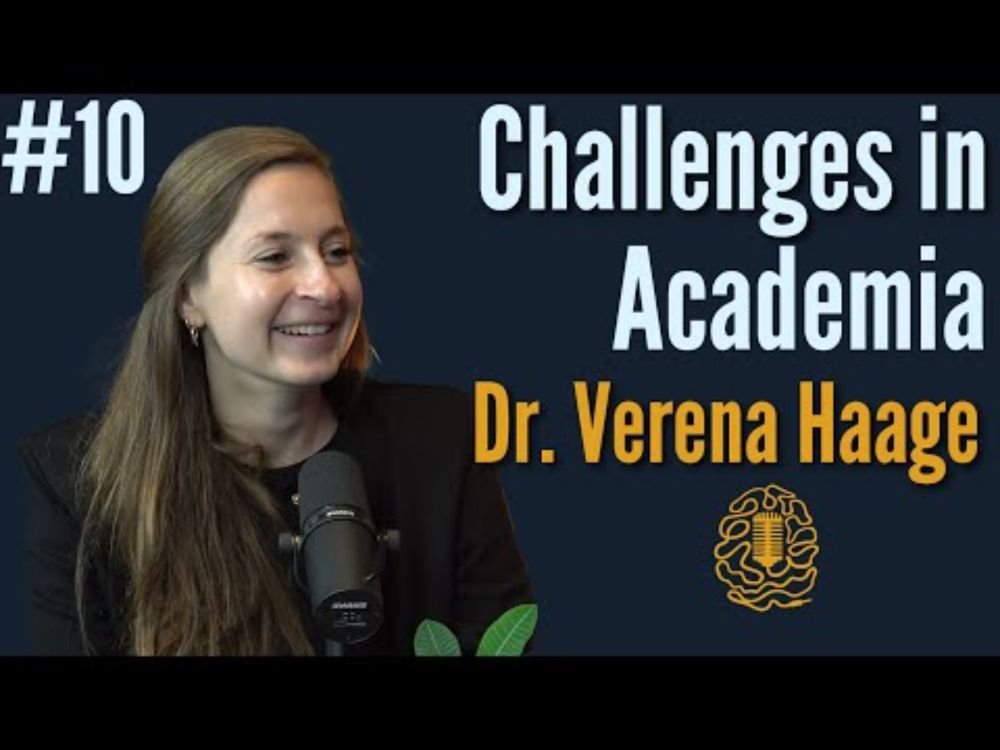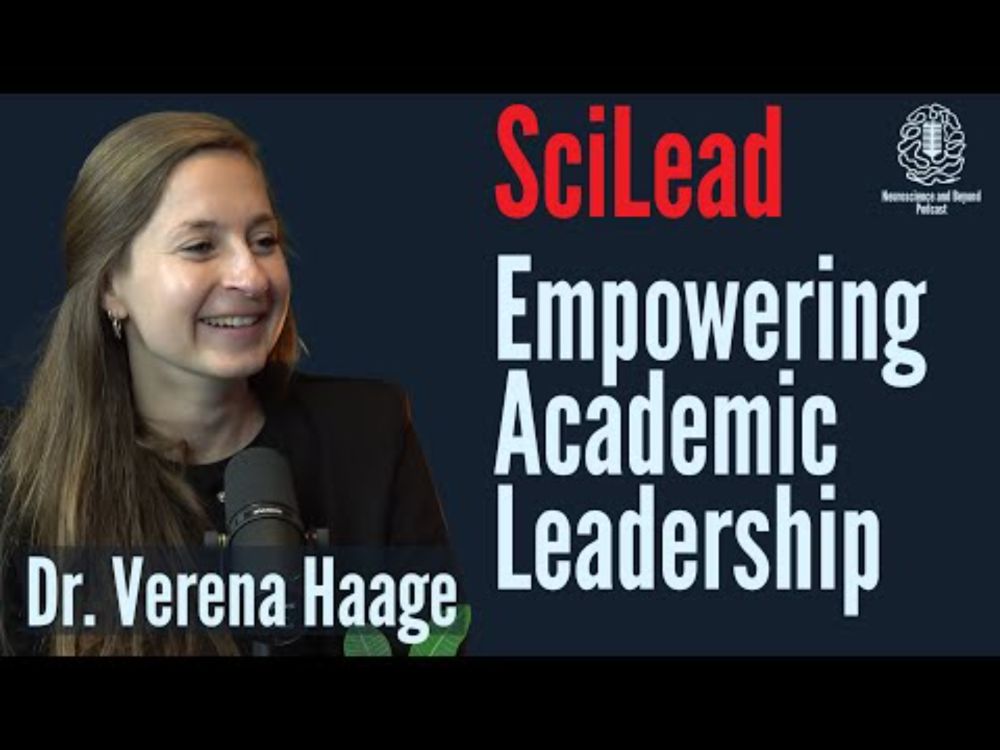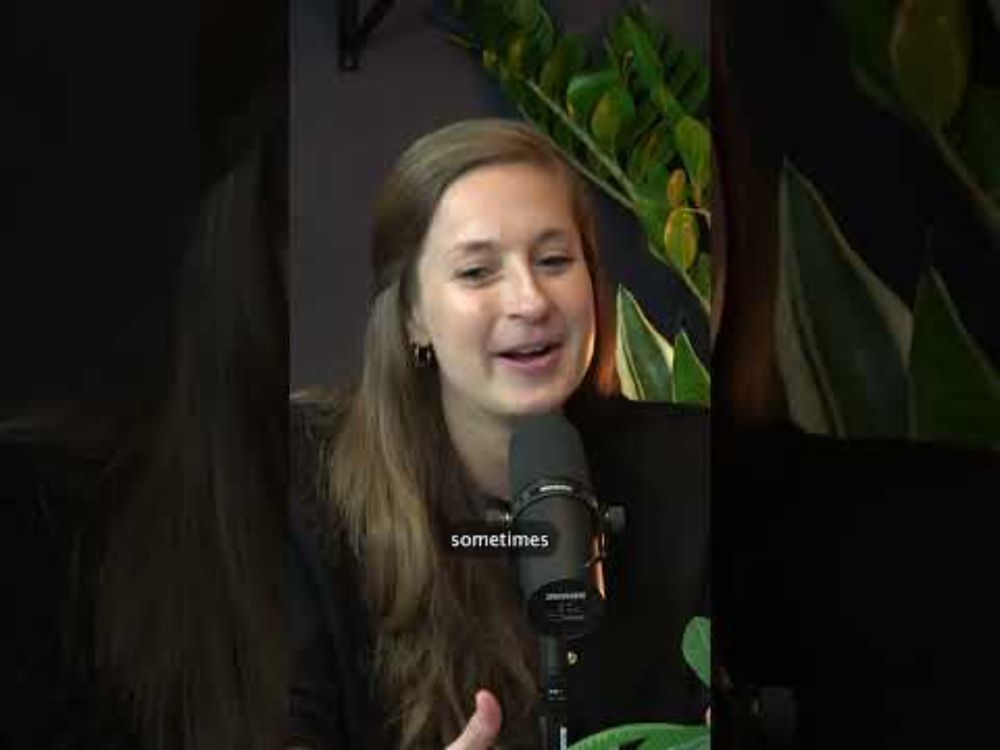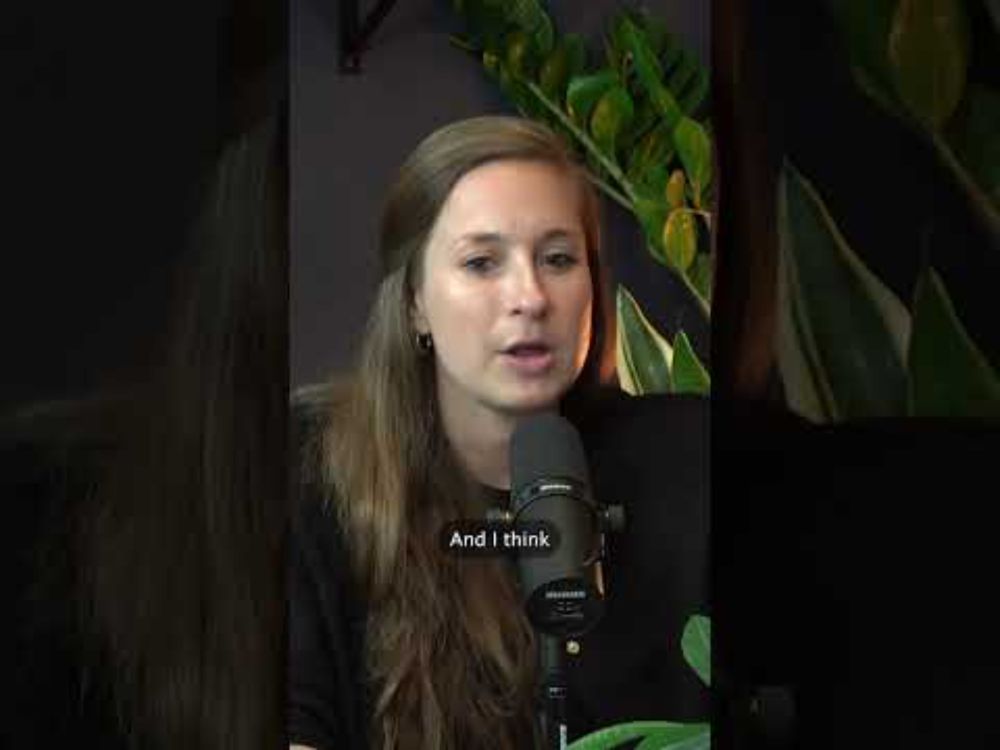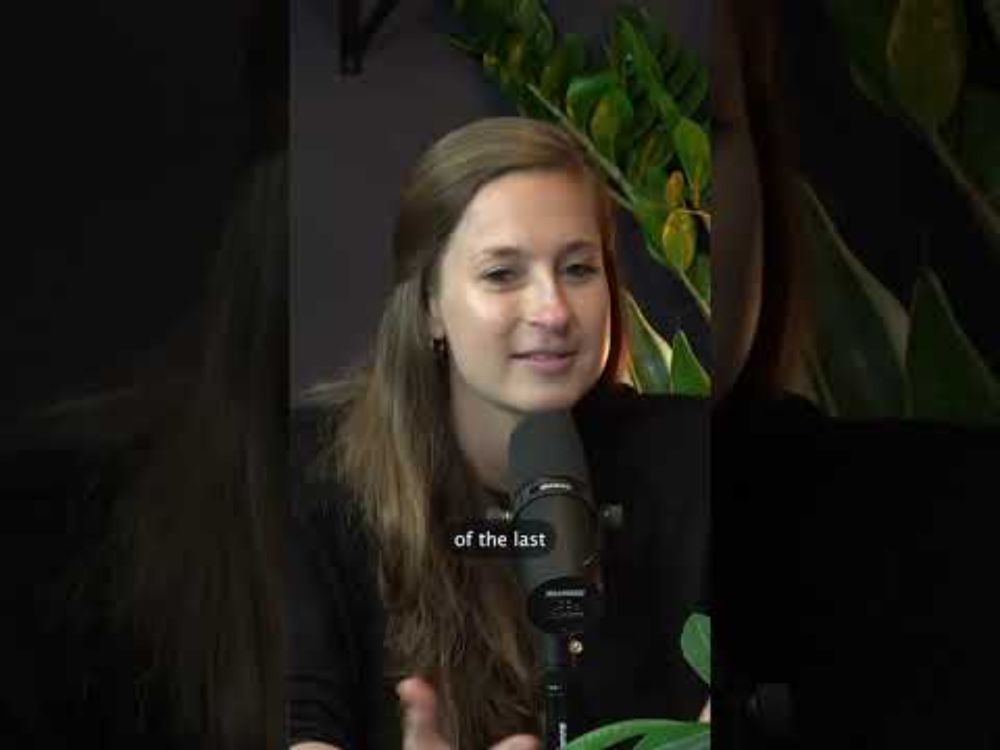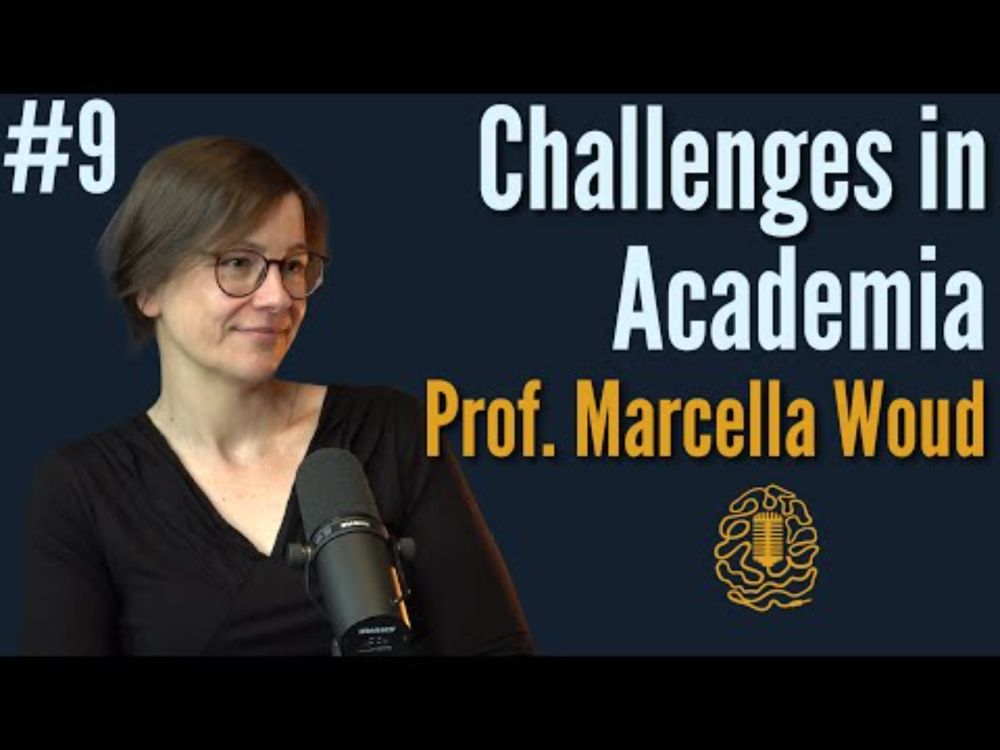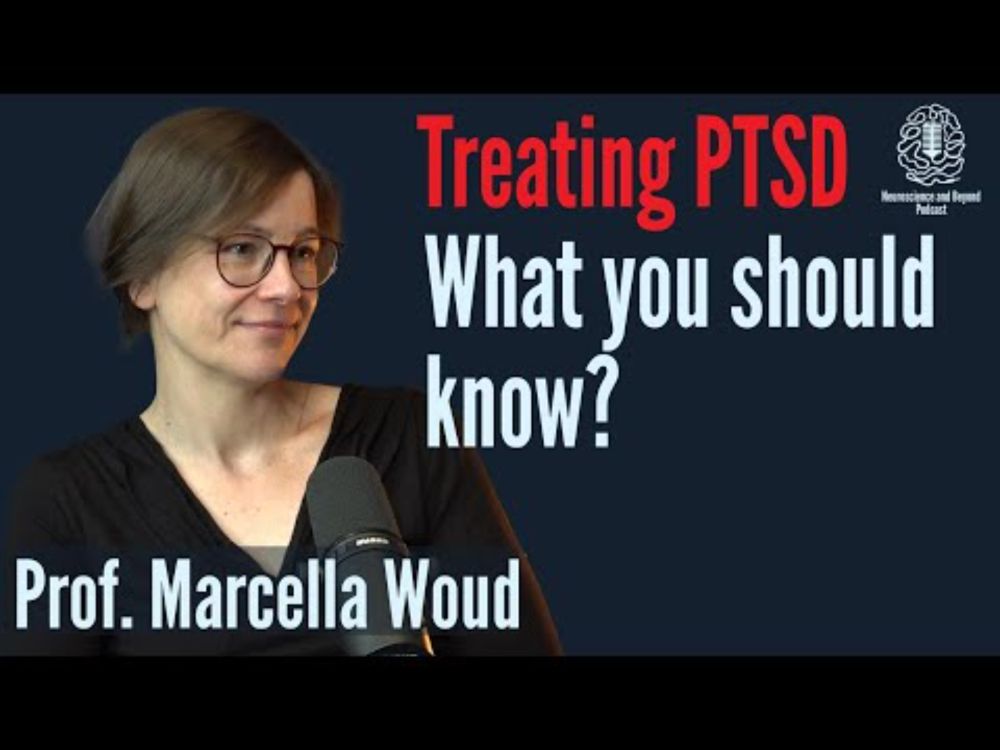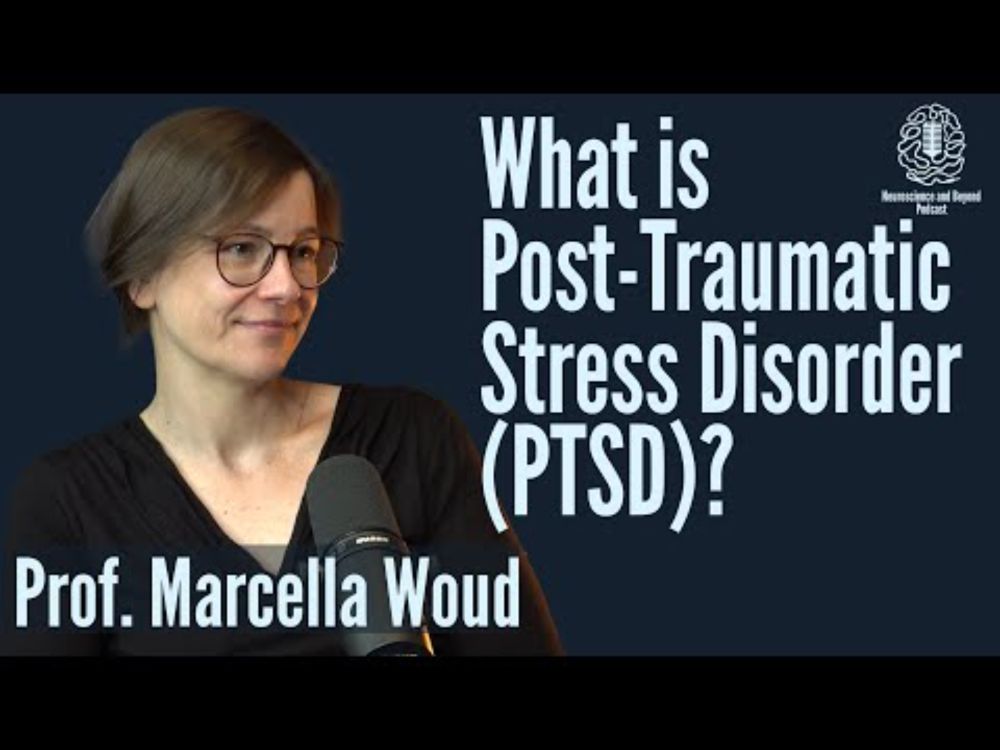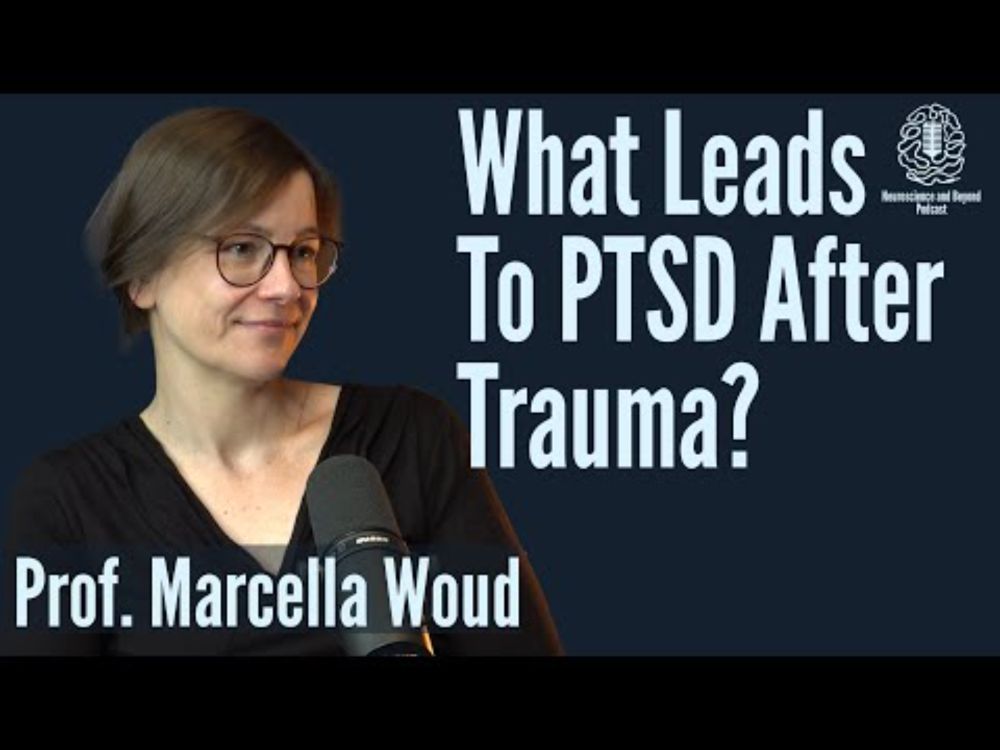YouTube video by Neuroscience and Beyond
Auditory Midbrain & Early Literacy
Noise doesn’t just distract us; it changes how the brain processes sound
🎧 Watch our latest episode to hear journalist Chris Berdik explain how noisy environments- from schools to workplaces to daily life-can compromise cognitive development and communication.
Link: youtu.be/PsTyPUWO0lM
06.10.2025 16:22 — 👍 0 🔁 0 💬 0 📌 0
YouTube video by Neuroscience and Beyond
How Noise Impacts our Brain, Health and Nature | Chris Berdik
🚨NEW EPISODE🚨
Noise isn’t just annoying, it’s a global health threat. In our latest episode, Chris Berdik explains how noise impacts sleep, stress, cognition, and hearing, and why better soundscapes in cities, schools, and hospitals are vital for health and wildlife.
Watch here: youtu.be/A5HZSU03qIM
22.09.2025 17:14 — 👍 0 🔁 0 💬 0 📌 0
YouTube video by Neuroscience and Beyond
Hearing Loss and Dementia: The Hidden Connection
Did you know that even mild hearing loss can increase the risk of developing dementia? Chris Berdik highlights research showing how hearing problems can accelerate cognitive decline by increasing isolation and reducing social interaction.
youtube.com/shorts/YvnId...
19.09.2025 18:06 — 👍 0 🔁 0 💬 0 📌 0
YouTube video by Neuroscience and Beyond
The Hidden Health Risks of Noise Pollution
What is the real effect of noise on our health? From triggering the body’s stress response to disrupting sleep and cognition, noise pollution is more than just an annoyance.
youtube.com/shorts/SmV8M...
18.09.2025 12:39 — 👍 0 🔁 0 💬 0 📌 0
YouTube video by Neuroscience and Beyond
Which Theory of Consciousness Is Your Favorite?
Explore consciousness with Prof. Kukushkin: how the brain’s predictions and feedback shape the way we experience the world.
▶️Watch the full clip here: youtu.be/Dby2Dh1G8Uc
🔗 More: linktr.ee/neuroscience...
15.09.2025 16:20 — 👍 1 🔁 0 💬 0 📌 0
YouTube video by Neuroscience and Beyond
The Neuroscience of Abstraction
How Does the Brain Build Abstract Ideas from Information?
Watch the full clip here: youtu.be/0Id07FX6l-o
🔗 More: linktr.ee/neuroscience...
08.09.2025 16:01 — 👍 1 🔁 0 💬 0 📌 0
YouTube video by Neuroscience and Beyond
Where Is Our Memory Stored? Everywhere and Nowhere
Ever wondered where memory truly lives? 🧠 In our latest episode, we welcome Prof. Nikolay Kukushkin @niko-kukushkin.bsky.social (NYU), to discuss the biology of memory and consciousness.
▶️ Watch the full clip here: youtu.be/VY9gqT7rs_A
🔗 More: linktr.ee/neuroscience...
01.09.2025 16:21 — 👍 2 🔁 1 💬 0 📌 0

Are you curious about the neuroscience behind social interactions? Watch our podcast episode #28 on YouTube with Raymundo Baez Mendoza, PhD!
🔗Link to the full episode: youtu.be/AFb4pQJC9zo
🔗Find us on X, Instagram, Spotify and more: linktr.ee/neuroscience...
28.08.2025 16:08 — 👍 2 🔁 1 💬 0 📌 0
YouTube video by Neuroscience and Beyond
What If Every Cell Has a Memory? From Cells to Consciousness | Prof. Nikolay Kukushkin
🚨NEW EPISODE🚨
What If Every Cell Has a Memory? From Cells to Consciousness | Prof. Nikolay Kukushkin @niko-kukushkin.bsky.social
youtu.be/x4dvE3uawyw
25.08.2025 16:02 — 👍 0 🔁 0 💬 0 📌 0
YouTube video by Neuroscience and Beyond
Why are neurons so special?
What makes neurons special? While all cells can change their gene expression and signals, neurons are unique because they form thousands of highly specific connections that can be modified independently. That specificity is what makes the brain so powerful and unique.
youtube.com/shorts/Pddc6...
23.08.2025 16:11 — 👍 0 🔁 0 💬 0 📌 0
YouTube video by Neuroscience and Beyond
Want Better Memory? Don’t Cram, Space It Out
Prof. Kukushkin explains the massed vs. spaced effect: memory lasts longer when learning is spread out, and this rule applies not just to humans, but even to single cells.
#Neuroscience #Learning #Memory
youtube.com/shorts/dH-0a...
22.08.2025 16:16 — 👍 1 🔁 0 💬 0 📌 0
YouTube video by Neuroscience and Beyond
Memory Lives in Every Cell, Not Just Your Brain
Memory isn’t just in your brain; it lives in every cell. Prof. Kukushkin explains how even kidney and gut cells store experiences, hinting that “memory is from the past, but for the future”
youtube.com/shorts/GIxoZ...
21.08.2025 16:25 — 👍 0 🔁 0 💬 0 📌 0
YouTube video by Neuroscience and Beyond
Funding Models and Future of Science | Challenges in Academia with Raymundo Báez-Mendoza, PhD #11
Funding Models, Career Pressure, and the Future of Science | Challenges in Academia with Raymundo Báez-Mendoza, PhD @raymundobaez.bsky.social
🔗 Link to the video: youtu.be/0C6jGqtBDYc
18.08.2025 16:35 — 👍 0 🔁 0 💬 0 📌 0
YouTube video by Neuroscience and Beyond
Fear vs. Friendship: How the Brain’s Amygdala Shapes Emotions
The same brain area handles fear... and friendship? Meet the amygdala. It’s more versatile than you think.
🔗 Watch the full clip here: youtu.be/L7SAEQXNQbc
🔗 More: linktr.ee/neuroscience...
11.08.2025 16:01 — 👍 0 🔁 0 💬 0 📌 0
YouTube video by Neuroscience and Beyond
Which Brain Regions Drive Social Behavior?
🧠Which brain regions control how we connect with others? The answer is... complex.
Watch the full clip here: youtu.be/zppBiFVXSDc
🔗 Link to our social media accounts: linktr.ee/neuroscience...
#SocialBrain #Neuroscience
04.08.2025 16:01 — 👍 0 🔁 0 💬 0 📌 0
YouTube video by Neuroscience and Beyond
Neuroscience of Social Interactions: Friendship & Theory of Mind | Dr. Raymundo Báez-Mendoza
🚨NEW EPISODE🚨
Neuroscience of Social Interactions: Friendship, Theory of Mind & the Amygdala | Dr. Raymundo Báez-Mendoza
Dr. Báez-Mendoza’s work reveals how the #brain makes sense of our most fundamental social experiences.
youtu.be/AFb4pQJC9zo
28.07.2025 16:26 — 👍 0 🔁 0 💬 0 📌 0
YouTube video by Neuroscience and Beyond
How does research funding reward quantity over quality, and what impact does that have on science?
🎧 Join us in the upcoming episode of our Challenges in Academia series, where Dr. Baez Mendoza @raymundobaez.bsky.social unpacks how funding pressures shape lab dynamics, career paths, and scientific risk-taking. 🔗Stay tuned for the new episode!
youtube.com/shorts/yYdKT...
26.07.2025 16:23 — 👍 2 🔁 1 💬 0 📌 0
YouTube video by Neuroscience and Beyond
The Brain Glitch That Breaks Boundaries
Dr. Mendoza @raymundobaez.bsky.social, neuroscientist at the German Primate Center, explains how brain damage can drastically alter social behavior.
#Amygdala #SocialBrain #Neuroscience
youtube.com/shorts/t96NG...
25.07.2025 15:52 — 👍 0 🔁 0 💬 0 📌 0
YouTube video by Neuroscience and Beyond
How do researchers study social interactions?
In our upcoming episode, Dr. Raymundo Baez Mendoza @raymundobaez.bsky.social, neuroscientist at the German Primate Center @primatenzentrum.bsky.social, explains how game theory is used to understand cooperation, competition, and social risk in controlled lab settings. 🐒
youtube.com/shorts/Ac34u...
24.07.2025 15:51 — 👍 9 🔁 4 💬 0 📌 0
YouTube video by Neuroscience and Beyond
Rethinking the Research Culture | Challenges in Academia with Dr. Haage #10
Dr. Haage shares actionable ideas, such as creating peer spaces and a trust-based lab culture to rethink what mentorship and leadership should look like in modern science.
What's your biggest frustration with research culture? Share your thoughts in the comments! 💬
🔗 youtu.be/29RgrADaxNg
21.07.2025 16:29 — 👍 0 🔁 0 💬 0 📌 0
YouTube video by Neuroscience and Beyond
SciLead: Empowering Academic Leadership
Dr. Verena Haage introduces SciLead, tackling academia's hidden challenge: the lack of early #leadership and #mentorship training. They offer events, workshops, and research to cultivate crucial skills for future scientific leaders.
youtu.be/zpS-fpmql1k
#Academia #Mentorship #SciLead
14.07.2025 16:17 — 👍 1 🔁 0 💬 0 📌 0
YouTube video by Neuroscience and Beyond
Importance of Single Cell RNA Sequencing in Microglia Research
Dr. Verena Haage explains how single-cell RNA sequencing helps us understand microglia,at a single cell level. Discover how this tool uncovers the brain’s immune system in unprecedented detail.
Watch the full clip here: youtu.be/kWxBdTXnbAw
🔗 Find us on other platforms: linktr.ee/neuroscience...
07.07.2025 16:07 — 👍 1 🔁 0 💬 0 📌 0
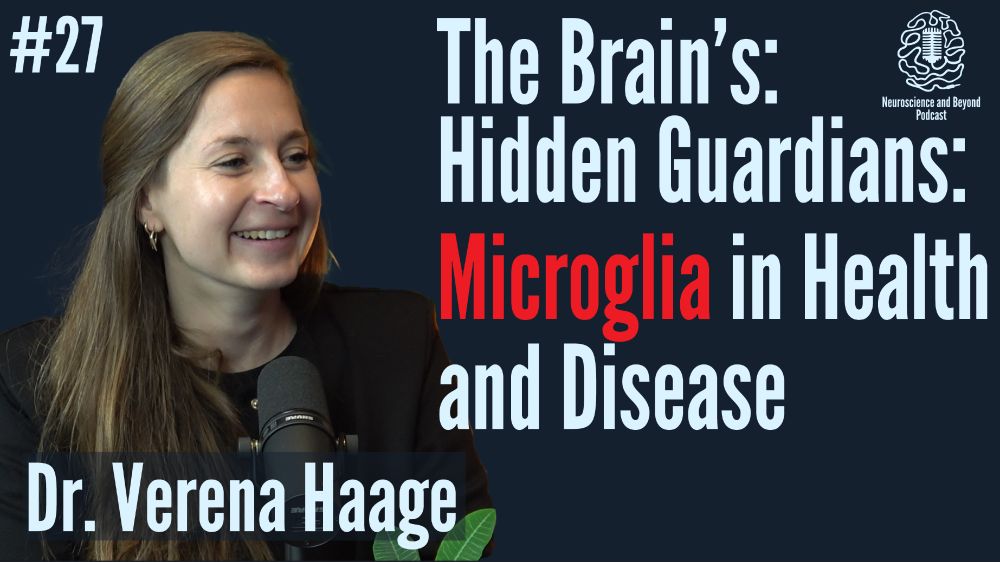
In Episode 27, we explore microglia - the brain’s immune cells - with Dr. Verena Haage. Learn how RNA sequencing, transcriptomics, and proteomics uncover their role in brain health, disease, and aging - plus insights into SciLead and research culture.
youtube.com/watch?v=ZRQz...
30.06.2025 16:51 — 👍 0 🔁 0 💬 0 📌 0
YouTube video by Neuroscience and Beyond
Human vs. Mouse Microglia
In our latest episode, we tackle a crucial question with Dr. Verena Haage: How different are human and mouse microglia? She explains these differences and the challenges of translating promising drug discoveries from preclinical mouse studies to human trials.
youtube.com/shorts/G9bD4...
29.06.2025 16:00 — 👍 1 🔁 0 💬 0 📌 0
YouTube video by Neuroscience and Beyond
Brain's Immune Cells & Sex Differences
Did you know that microglia, the brain's immune cells, show significant sex-dependent differences, varying across brain regions in mice? Join us for the upcoming episode with Dr. Verena Haage from Charité Berlin to learn about #microglia in #health and #disease.
www.youtube.com/shorts/22FeF...
27.06.2025 14:56 — 👍 1 🔁 0 💬 0 📌 0
YouTube video by Neuroscience and Beyond
Meet the Brain's Bodyguards: Microglia
Ever heard of microglia? They're the brain’s own immune cells keeping your neurons safe and healthy! In our next episode, neuroscientist Dr. Haage dives into how these cells shape brain development, fight disease, and protect neural health. Don’t miss it dropping Monday!
youtube.com/shorts/A687M...
26.06.2025 16:08 — 👍 1 🔁 0 💬 0 📌 0
YouTube video by Neuroscience and Beyond
Balancing Research, Clinical Work, and Personal Life | Challenges in Academia with Prof. Woud #9
In the latest episode of Neuroscience and Beyond, Prof. Marcella Woud from @uni-goettingen.de highlighted the real struggles in academia, from balancing clinical training with PhD research to the insecurity of short-term contracts and the lack of stable research roles.
youtu.be/6Arred_zB3E
23.06.2025 16:09 — 👍 1 🔁 0 💬 0 📌 0
YouTube video by Neuroscience and Beyond
How is PTSD Treated?
How Is PTSD Treated?
From EMDR to exposure therapy - Prof. Woud shares what helps people recover from PTSD.
🔗 Watch the full clip: youtu.be/bmZj0PtwSNY
🔗 More content: linktr.ee/neuroscience...
16.06.2025 18:24 — 👍 0 🔁 0 💬 0 📌 0
YouTube video by Neuroscience and Beyond
What Is Post-Traumatic Stress Disorder (PTSD)?
What Is PTSD?
PTSD isn’t just “bad memories.” Learn how flashbacks, fragmented memories, and cognitive changes define this disorder.
🔗 Full explanation from Prof. Woud: youtu.be/sdYF2qBv9L4
🔗 Other social media accounts: linktr.ee/neuroscience...
09.06.2025 16:03 — 👍 0 🔁 0 💬 0 📌 0
YouTube video by Neuroscience and Beyond
Why Some People Get PTSD and Others Don’t
Why do some people develop PTSD after trauma while others don’t? Prof. Woud explains the powerful role of memory, interpretation, and self-blame.
Watch the full clip here: youtu.be/tCpTybYPt24
🔗 More: linktr.ee/neuroscience...
02.06.2025 16:06 — 👍 0 🔁 0 💬 0 📌 0
Cell and Developmental Biologist @ St. Jude Children's Research Hospital - 🦔 signaling in 🧠🫀&🫁 - science 🧪, academia, DevBio research, mentoring, scicomm, 🔬 images, birds 🪶, dogs, hikes - fueled by ☕ & 🧘🏼♀️ - Y’all means all - Views my own
RNAPII &Transcription Regulation -Chromatin Conformation & Nuclear Architecture - ESCs & Neuronal Differentiation - Nuclear Mechanotransduction - Cell Plasticity
UMG, Göttingen, Germany
European scientist - Postdoc - solving neuroscience mysteries 🧠 🧬🔬🏳️🌈🇪🇺
Our mission is medical translation: turning research into health
#TranslationalMedicine #DigitalHealth #Innovation
Offizieller Bluesky-Account der Uni Göttingen (ohne Unimedizin) • Bluesky account of University of Göttingen • http://uni-goettingen.de/impressum
Professor of Clinical Psychology and Experimental Psychopathology at University of Göttingen. CBT therapist. Cognitive processes, cognitive bias modification, anxiety.
Neurowissenschaftler @unigoettingen.bsky.social, Direktor @primatenzentrum.bsky.social, Leiter Abt. Kognitive Neurowissenschaften. Sprecher @tvvde.bsky.social. Opinions are my own. Messages in German and English.
at University of Göttingen. We study behavior and cognition of humans and primates; funded by Deutsche Forschungsgemeinschaft DFG;
Web: http://www.sfb1528.uni-goettingen.de
YouTube: http://tinyurl.com/36dkn7uu
Impressum: https://www.uni-goettingen.de/de/
We are a research group at @uitnorgesarktiske.bsky.social focusing on how multiple languages interact in the mind/brain. The center is funded by @mohnfoundation.bsky.social.
🔗https://uit.no/research/clabl
Auditory Neuroscience Lab at Birkbeck University London 🧠 PI: Prof Adam Tierney @adamtierney.bsky.social Website: https://sites.google.com/view/audioneurolab
Developmental psychologist and psycholinguist rolled into one, with generous servings of mom of two added on.
Evolution of neurons and nervous systems / choanoflagellates / sponges / ctenophores. Group leader at the Michael Sars Centre (University of Bergen). @msarscentre.bsky.social Webpage: https://www.uib.no/en/michaelsarscentre/114773/burkhardt-group
European Animal Research Association | Informing about the importance of biomedical research using animals and the progress of new approach methodologies.
Where the future begins. 🚀🔬 One of the world’s leading universities for technology & natural sciences. Posts in both English and German.
www.ethz.ch
Gut-Brain Neuroscientist & New PI | Wellcome Trust Sir Henry Dale Fellow | Group leader of UCL Gut-Brain Neurophysiology & Ingestive Behaviour lab | http://brierley-lab.org
Single-molecule stuff, 🔬, 🦠 , 🧬, ☕, Assoc. Prof. @WUR (Laboratory of Biophysics, Wageningen), he/him, 🇩🇪->🇬🇧->🇳🇱, Sites: https://jhohlbein.com, https://scholar.google.nl/citations?hl=en&user=WZZAydwAAAAJ&view_op=list_works&sortby=pubdate
FocalPlane is a community site for anyone with an interest in microscopy. Hosted by Journal of Cell Science (@jcellsci.bsky.social) and The Company of Biologists (@biologists.bsky.social).
https://focalplane.biologists.com/
Head of Light Imaging Facility at EMBL Rome. Helping people image the world.
Biochemistry. Structural Biology in all its possible flavours. University of Göttingen. University Medical Centre Göttingen. Previously @MPI Dortmund and @MPI _Biochem.
Scientist at Paul Langerhans Institute Dresden. Interested in the structural features of pancreatic beta cell function and signaling. 🔬
